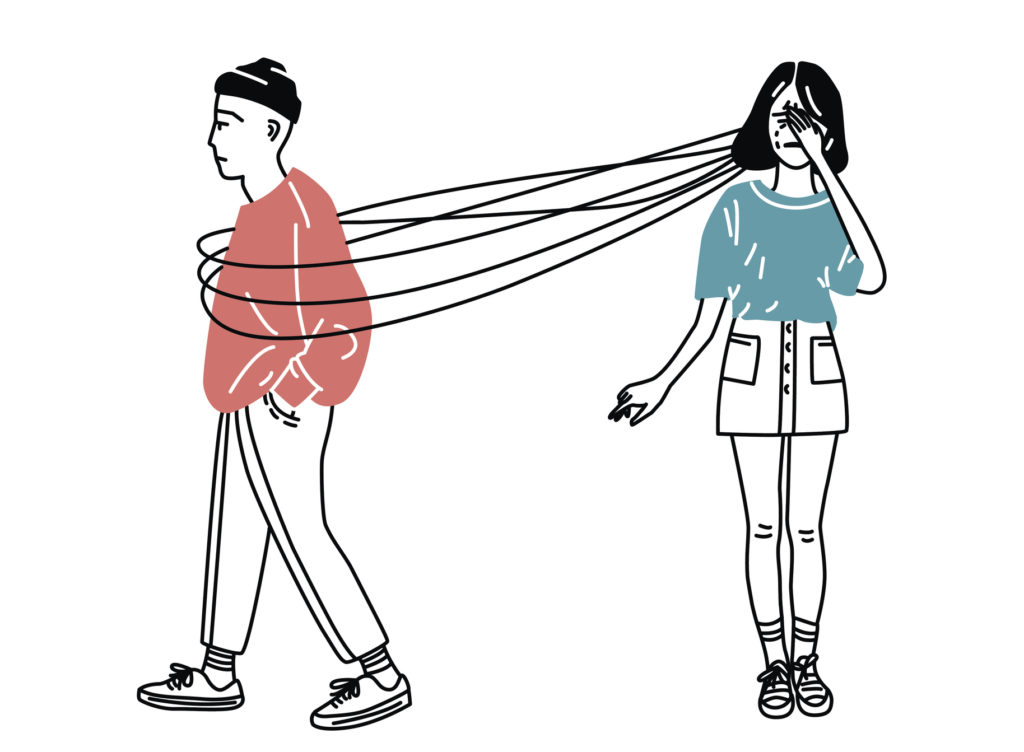codependency & love addiction: are they the same thing?

There’s not much to be gained by trying to discern the differences in these two concepts. They came into existence and evolved, albeit during different decades, in reference to essentially the same set of dysfunctional patterns that many people exhibit in romantic relationships.
For all practical purposes, codependency and love addiction are essentially about:
losing yourself in relationships, acting out unresolved traumas and explaining/justifying it all by telling yourself that it is because you “really love” this other person.
self-compassion is essential
When I work with people in therapy on issues related to codependency and love addiction, I start by emphasizing the importance of self-compassion. These relational patterns cause enormous pain and great confusion, and no one WANTS to be engaging them. However, we are complex beings and sometimes we do things that boggle our own and others’ minds.
I don’t emphasize self-compassion as a sentimental point, it’s entirely practical—it’s the foundation for real and enduring personal healing and growth. We humans really struggle with this idea because we live in a ‘get tough’ culture that exhorts us to not be ‘so emotional’, to ‘snap out of it’, etc.
Unless we’ve done the work to understand what self-compassion really is, we associate it with ‘being weak’. We consider it unserious, bordering on naïve. This couldn’t be further from the truth. Self-compassion is rigorous and dead serious; it is an expression and activity of deep personal power.
changing how you talk to yourself
What I help therapy clients do is start talking to themselves with much more kindness and genuine care about all that has been happening. I support clients to start slowing down and asking real compassion-based questions rather than the rhetorical and shaming ones they’ve been bombarding themselves with, like “why am I such a idiot”, “what’s wrong with me”, etc.
There are reasons we do what we do and a compassion-based inquiry can help us see more and more clearly the complex interpersonal and emotional dynamics that have been running the show. Constructive self-reflection in therapy takes us in the direction of helping you:
- understand your own and your partner’s attachment styles
- understand the covert processes that are underneath the superficial fighting
- see clearly your own and your partner’s contributions to the conflict and chaos
- see what you yourself need to be doing and NOT doing in order to be part of the solution
healthy love does not hurt or make you feel crazy
Since codependency and love addiction refer to patterns in how we experience and participate in relationships, it’s useful to ask yourself if any of these patterns resonate with you.
- Being excessively preoccupied with what your partner might be thinking and feeling; repeatedly seeking to get him/her to tell you what he/she is thinking/feeling; being reactive and injured if your partner says things you don’t want to hear;
- Feeling panicked when your partner sends out signals that he/she is taking space; engaging in and utilizing methods of manipulation to try to keep your partner from abandoning you;
- Minimizing the hurtful things your partner says or does, justifying it by saying “it’s just who he/she is,” and repressing the complicated feelings you have about making yourself available for being treated so poorly.
- Walking on eggshells, being regularly fearful about expressing your authentic thoughts and feelings; burying your feelings so as to not ‘rock the boat’—but then engaging in escalated aggression when you can no longer push down the feelings.
- Complaining that the relationship does not involve enough closeness, but then relating to your partner in ways that pushes him/her away, puts him/her on the defensive and stirs up drama that crowds out emotional safety.
- Knowing the relationship is unhealthy but avoiding the scary process of addressing things or walking away.
If you see yourself in these patterns then it’s time to get to work.
The relationship you’re in needs to either be seriously reorganized, or it might need to end. And it’s only YOU whom you can (somewhat) control—so focusing on changing YOURSELF is key. If emotional closeness/safety is not cultivated between romantic partners then the relationship itself (and your life in general) can chronically feel like you’re living in enemy territory.
emotional distance & emotional closeness
What we want in relationships is for the inevitable hurtful exchanges to be minimized so that we can maximize emotional closeness (i.e. intimacy, connection, teamwork). Relationships need not be conflict-free; the hope is simply that the RUPTURES in closeness that result from hurtful communication can be REPAIRED sooner rather than later.
In other words: a key aspect of a healthy and enduring relationship is the ability of the couple to repair, to de-escalate tension, and to reconnect in ways that are emotionally satisfying for each partner.
At the present time, where is your relationship on this continuum?
If your relationship is currently more emotionally distant than close, here’s the important question:
Do you expect to reconnect soon or do you and your partner have a habit of perpetuating distance/animosity?
If your answer is the latter then it’s time to ratchet up the emotional honesty with yourself and your partner. Don’t put it off. Deal with it. I’ve seen many couples in therapy over the years who realized only after a few sessions that they should have begun addressing things years earlier.
Codependency and love addiction are characterized by obsessing thinking and compulsive behaviors that seem to be seeking emotional connection. However, in their actual effect, what’s happening is that they are deepening and reinforcing emotional disconnection. And the emotional pain that results is no joke.